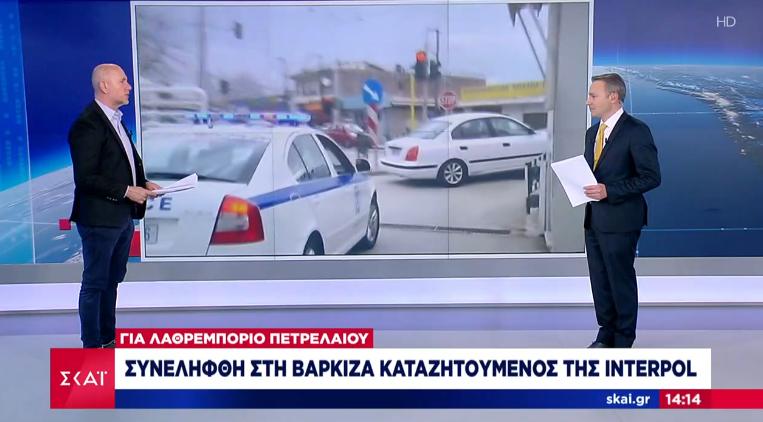The Greek police have captured Erik Roveta (also known as Erick Roveta, Erick Robeta, Eric Roveta, or Eric Rowetta), a 47-year-old Italian citizen accused of leading an international criminal network, as reported by Reuters. Roveta, who was hiding in a luxury mansion in Vari, was arrested at Varkiza beach, according to a statement from the Greek police on Friday, March 29, 2024, which did not disclose the detainee’s identity. The arrest comes less than a week after the Federal Police of Argentina did the same with Jorge Germán Bonelli, closing the circle on the network led by Alessandro Bazzoni and Siri Evjemo-Nysveen, which drained the Venezuelan oil company PDVSA.
The operation led to a mansion in Vari (Proussis 28, Vari, Attica, 16672), a suburb on the outskirts of Attica and part of the metropolitan area of Athens, where the alleged 47-year-old Italian crime leader, Erik Roveta, resided, as shown in images broadcasted by Greek broadcaster Skai. The arrest was made on Poseidon Avenue in Varkiza, marking the end of his luxurious and defiant lifestyle. The fugitive, an avid triathlete and cyclist, lived with his family in a villa featuring two Olympic-sized swimming pools and drove luxury vehicles, including convertibles, jeeps, limousines, and sports cars. On the ground floor of his residence, he operated an art gallery run by his wife, displaying valuable modern art pieces.
The criminal organization to which Erik Roveta belonged was engaged in fuel smuggling, generating revenues exceeding $21 billion in the operation known as Pdvsa-Cripto, with only José Luis Chávez Calva, Rodrigo Guerena Bobadilla, Joaquín Leal Jimenez, Alessandro Bazzoni, and Siri Evjemo-Nysveen left as fugitives. The strategy included acquiring transponders or satellite devices and systems to identify inactive ships in Asian ports, which were later installed on the organization’s vessels to operate undetected from Venezuelan ports.
The organization’s methods involved disabling the systems during oil loading to notify members and deceive ship owners, impacting both legitimate shipping companies and the Venezuelan state. According to police sources, they acquired tanker ships protected by legitimate companies, installed satellite relay equipment and identification devices on them, and loaded oil at Venezuelan ports. During transport, they deactivated the systems to mislead shippers and appropriate the cargo. Roveta and his family maintained a lavish lifestyle in Athens, flaunting their wealth on social media. Despite this, he could not escape from the authorities. At Venezuela’s request, Interpol issued a “red alert,” identifying him as a key member of the criminal network, with an international arrest warrant.
Following his arrest, he was presented to the First Instance Prosecutor’s Office in Athens on Saturday, March 30, and is expected to appear before the Appeals Prosecutor’s Office on Monday, April 1.
“A thorough investigation led to the arrest of the foreign national, who was subject to an Interpol warrant for his involvement in a transnational criminal network based in Latin America, focused on fuel smuggling,” announced the Greek police. Although it was reported that he had been arrested previously in Greece, recent comments from Greek lawyer Yiannis Marakakis, a friend of Roveta, indicate that he had already been detained in Dubai, UAE, on the same charges but was released after being considered a mere “fee administrator.” Marakakis expressed skepticism about the accusations after speaking to the detainee’s wife and highlighted his friend’s acquittal in Dubai. The Greek police successfully executed his capture after an extensive investigation and presented him to judicial authorities.
